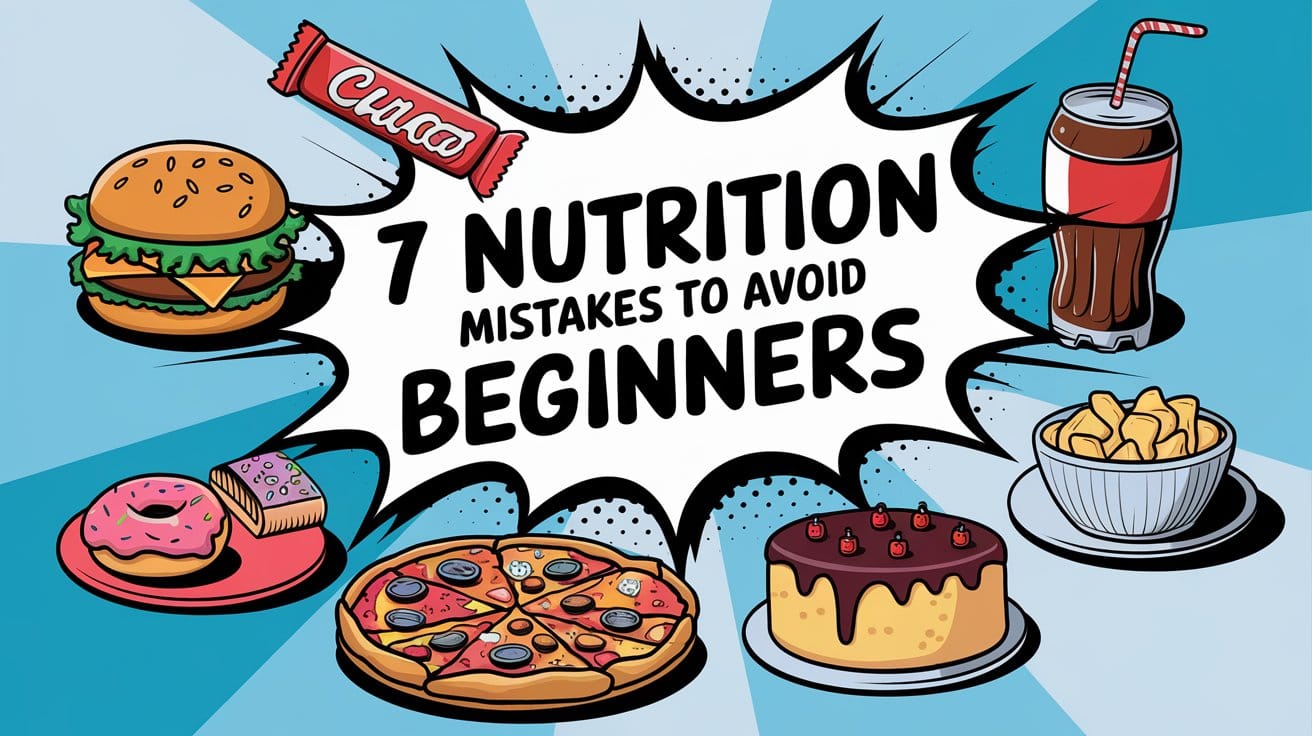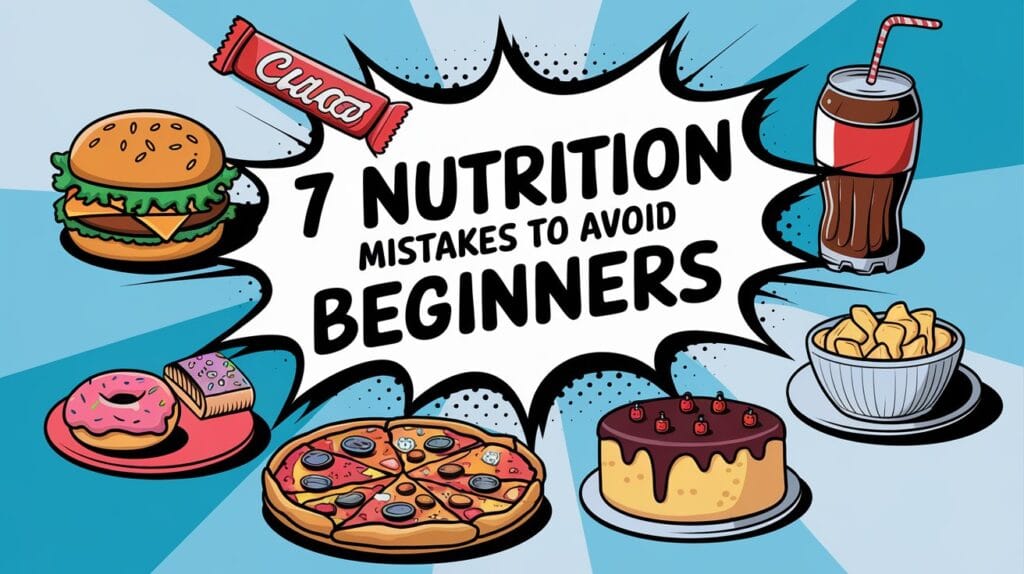 Embarking on a fitness journey is exciting, but it can also be challenging, especially when it comes to nutrition. Many beginners make common mistakes that can hinder their progress. In this post, we’ll explore seven of these mistakes and provide tips on how to avoid them, helping you stay on track toward your fitness goals.
Embarking on a fitness journey is exciting, but it can also be challenging, especially when it comes to nutrition. Many beginners make common mistakes that can hinder their progress. In this post, we’ll explore seven of these mistakes and provide tips on how to avoid them, helping you stay on track toward your fitness goals.
1. Skipping Meals
Skipping meals might seem like an easy way to cut calories, but it can backfire. When you skip meals, your body goes into starvation mode, slowing down your metabolism and leading to overeating later in the day. Aim for balanced meals throughout the day to keep your metabolism active and energy levels steady.
Tip: Plan your meals ahead of time and include healthy snacks to prevent hunger from leading to poor food choices.
2. Overestimating Portion Sizes
It’s easy to underestimate the amount of food you’re consuming, especially with restaurant portions often being much larger than recommended. Overeating even healthy foods can lead to weight gain.
Tip: Use measuring cups or a food scale to familiarize yourself with proper portion sizes. This can help you understand how much you’re actually eating and avoid unintentional overconsumption.
3. Relying on Supplements Over Whole Foods
Supplements can be beneficial, but they shouldn’t replace whole foods in your diet. Many beginners fall into the trap of relying on protein powders, vitamins, and other supplements instead of focusing on a balanced diet.
Tip: Prioritize nutrient-dense whole foods like fruits, vegetables, lean proteins, and whole grains. Use supplements to fill in nutritional gaps, not as a substitute for real food.
4. Cutting Out Entire Food Groups
Eliminating entire food groups, such as carbs or fats, can lead to nutrient deficiencies and an unsustainable diet. Each macronutrient plays a crucial role in your body’s functions.
Tip: Instead of cutting out food groups, focus on balance and moderation. Incorporate a variety of foods to ensure you’re getting a wide range of nutrients.
5. Not Drinking Enough Water
Dehydration can negatively impact your energy levels, metabolism, and overall health. Many people confuse thirst with hunger, leading to unnecessary snacking.
Tip: Aim to drink at least 8 cups (2 liters) of water per day, more if you’re active. Keep a water bottle with you to remind yourself to stay hydrated throughout the day.
6. Ignoring the Importance of Fiber
Fiber is essential for digestive health and helps keep you feeling full, which can aid in weight management. However, many beginners overlook fiber intake, focusing instead on protein or calorie counting.
Tip: Include fiber-rich foods like fruits, vegetables, whole grains, and legumes in your diet. Aim for at least 25-30 grams of fiber per day.
7. Falling for “Health” Food Marketing
Just because a product is labeled “organic,” “low-fat,” or “gluten-free” doesn’t necessarily mean it’s healthy. Many of these products are highly processed and contain added sugars, unhealthy fats, or excessive calories.
Tip: Read nutrition labels carefully and focus on whole, unprocessed foods. Be wary of marketing claims and do your research on what truly constitutes a healthy choice.
Conclusion
Avoiding these common nutrition mistakes can set you on the right path toward achieving your fitness goals. Remember, a balanced diet is key to a healthy lifestyle. Take the time to educate yourself about proper nutrition, and don’t be afraid to seek guidance from a nutritionist or dietitian if needed.





